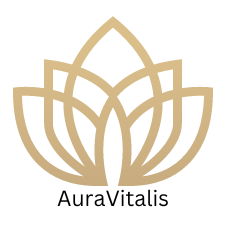
If you’re like me, you’ve probably tried a lot of different ways to improve your health. Maybe you’ve jumped on the latest diet trend, signed up for that intense workout class, or stocked up on all the supplements your local health store could offer. But, have you ever tried just sitting down, closing your eyes, and breathing for 10 minutes? Yep, that’s it. No fancy equipment or gym memberships required—just good old-fashioned meditation.
Meditation is a simple yet powerful practice that can make a profound difference in your overall health and well-being. In fact, if you dedicate just 10 minutes a day to this mindful practice, you’ll start to notice positive changes in both your mind and body. I know it may sound too good to be true, but let me explain how it works and why it’s worth your time.
Why Meditation Is a Game-Changer for Health
First things first: meditation isn’t some mysterious, esoteric practice. It’s a tool for your mind, and much like your body needs movement and nourishment, your mind craves peace and focus. We live in a world that’s always on—work emails buzzing, social media notifications popping, and the endless to-do lists piling up. All of this overstimulation can take a toll on your health, leaving you feeling frazzled, overwhelmed, and, quite frankly, burnt out.
Meditation helps hit the “pause” button on all that chaos. It allows you to reset, center yourself, and just be for a few moments. When you give your brain this opportunity to rest, incredible things happen—your stress levels decrease, your focus improves, and your body can finally relax. These benefits compound over time, which means that just 10 minutes of meditation each day can have a lasting impact on your overall health.
Stress Relief in a Snap
One of the biggest health benefits of meditation is stress relief. When I first started meditating, I didn’t really understand how 10 minutes of sitting still could help me feel less stressed. But then, after a particularly hectic day (you know the kind—back-to-back meetings, phone constantly buzzing, traffic jams), I decided to give it a real try. I lit a candle, sat on my yoga mat, and set a timer for 10 minutes.
At first, I was fidgety, and my mind kept wandering, but I stuck with it. After a few minutes, I felt my shoulders start to drop, my breathing slowed down, and I could actually feel the tension in my body easing up. When the timer went off, I was amazed at how much calmer I felt. My mind was clearer, and I was more present. That was my “aha” moment—meditation works because it helps you break free from the whirlwind of thoughts and stresses that can wreak havoc on your body.
Physical Benefits: It’s Not All in Your Head
When we think of meditation, we often associate it with mental health—and it’s true that meditation has incredible benefits for your brain. But what surprised me most was the physical benefits. Studies show that regular meditation can lower your blood pressure, improve your sleep, boost your immune system, and even reduce inflammation.
Think of it this way: when your mind is stressed, your body responds by releasing stress hormones like cortisol. These hormones, in small doses, are perfectly normal. But when you’re constantly stressed, your body stays in “fight or flight” mode, and over time, this can lead to serious health issues like high blood pressure, weight gain, and a weakened immune system. Meditation helps lower your cortisol levels, giving your body the chance to recover and return to a state of balance.
10 Minutes is All You Need
You might be thinking, “I don’t have time to meditate. My schedule is already packed.” Trust me, I get it. Life is busy. But here’s the thing: you don’t need hours of meditation to see benefits. In fact, 10 minutes a day is all it takes to make a difference.
If you’re a beginner, I recommend starting with just 5 minutes and gradually working your way up to 10. I used to meditate in short bursts during my lunch break, and even that small amount of time made a noticeable difference. Once you experience the calm and clarity that meditation brings, you’ll likely find yourself making time for it—even if that means waking up 10 minutes earlier or setting aside time before bed.
How to Meditate in 10 Minutes
Okay, so how do you actually meditate? The beauty of meditation is that there’s no one “right” way to do it, but here’s a simple practice you can try today:
- Find a Quiet Space: Sit in a comfortable spot where you won’t be disturbed for 10 minutes. You can sit on a cushion, a chair, or even lie down—just make sure you’re comfortable but alert.
- Close Your Eyes and Focus on Your Breath: Take a few deep breaths in through your nose and out through your mouth. Then, let your breathing settle into a natural rhythm. Focus your attention on the sensation of your breath as it moves in and out of your body.
- Notice Your Thoughts, But Don’t Engage: Inevitably, thoughts will pop up. That’s totally normal. Instead of getting frustrated or trying to stop your thoughts, just notice them and gently bring your focus back to your breath.
- Set a Timer: Use your phone or an app to set a 10-minute timer. This way, you won’t be constantly checking the time, and you can relax fully into the practice.
- Be Kind to Yourself: Meditation is a practice, not a performance. Some days your mind will be busier than others, and that’s okay. The key is to show up consistently and be kind to yourself throughout the process.
My Personal Meditation Routine
I typically meditate first thing in the morning. Before the emails start flooding in and before the day’s demands take over, I give myself those 10 minutes of quiet. I sit on my favorite cushion, light a calming lavender candle, and simply focus on my breath. It’s a gentle reminder that my health and well-being come first, and everything else can wait for a few moments.
On days when my schedule is packed, I’ll sneak in a quick 10-minute session before bed. It helps me unwind and sets the tone for a restful night of sleep. Even when I’m traveling or have a hectic day, I make sure to carve out time for meditation, whether that’s in the car while parked or during a short break at work.
Conclusion: The Ripple Effect of Meditation
Meditation isn’t a quick fix, but it is one of the simplest and most effective tools for improving your health—physically, mentally, and emotionally. The best part? It only takes 10 minutes a day to start feeling the benefits.
By giving yourself this small window of time, you’re not only reducing stress and calming your mind, but you’re also creating a ripple effect that will positively influence your overall health. So, grab a comfy seat, take a deep breath, and give yourself the gift of 10 minutes of meditation. Your body and mind will thank you.
Now, go ahead—find that quiet space, set your timer, and start your journey to better health through meditation. You’ve got this!
